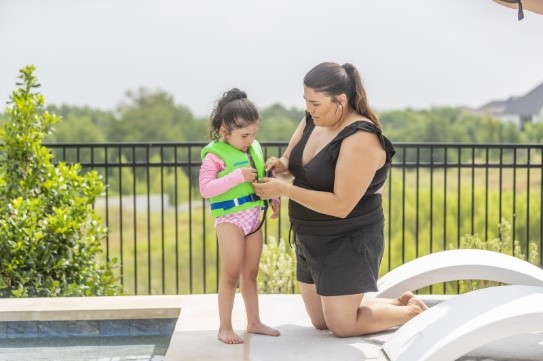Keeping children with food allergies safe at school
When it comes to life-threatening food allergies at school, teachers make all the difference.
“It is about prevention,” said Ankita Singh, D.O., pediatrician at Cook Children’s Pediatrics Walsh Ranch. “Teachers need to be involved from the beginning and incorporate the food-related safety precautions just like it is part of the normal school day.”
As a mom of two kids with life-threatening food allergies, I know that the school experience largely depends on the understanding and empathy of those involved. Kindness goes a long way.
One in 13 children has severe food allergies (about two per classroom), and 75% of these cases occur in children with no prior family diagnosis. Chances are most children will know someone with food allergies and could save a life.
A food allergy reaction can cause symptoms that range from mild to life-threatening. In the United States, food allergy is the leading cause of anaphylaxis outside the hospital setting. Anaphylaxis is a serious, life-threatening allergic reaction that typically affects more than one part of the body at the same time and may include hives, wheezing, high heart rate, rapid swelling and trouble breathing. People who have previously experienced only mild symptoms may suddenly experience a life-threatening reaction.
Clear Communication is Key
Parents need to be very clear from the beginning with everyone at the school – teachers, nurses, administrators and other parents. They should discuss the food allergy action plan with the school nurse, informing them what foods the child should avoid and what to do in case the food was eaten, or they have been in contact with it.
“For lunches and birthday parties in the child’s classroom, the school should tell the parents not to include the allergens to avoid cross-contamination and the risk of severe allergic reactions,” Dr. Singh said. “Make sure the child is aware of what to do if there is exposure at school. Run through the scenario at home so all aspects are covered the best you can without being there.”
The nurse should also receive two epinephrine autoinjectors – the first-line treatment for anaphylaxis which works to reverse the life-threatening symptoms. A delay in using epinephrine is common in severe food allergic reaction deaths.

“Parents need to be vigilant about checking the epinephrine autoinjectors for expiration dates as well as dosage,” Dr. Singh said. “There are different doses for weight and age as children get older.”
If epinephrine is used, the child must be monitored at the emergency department as they could still have a rebound reaction.
Empowering Kids to be Kind
About one-third of children with food allergies report being bullied because of their allergies. The reported bullying ranges from verbal teasing or criticism to more obvious acts such as an allergen being waved in their face or intentionally putting it in their food. Therefore teachers leading by example can show what it means to put others before yourself. This can change the trajectory for children with food allergies.
“The best way to go about it is education such as a doctor talking to the students about food allergies or a fun presentation led by the teacher empowering the children to protect their classmates with the allergies,” Dr. Singh said. “If kids understand why food allergies happen, it can decrease bullying.”
Tips from Food Allergy Research & Education to prevent food allergy bullying:
- Encourage open communication – be sure children understand what bullying is and what to do if they are bullied. Emphasize reporting bullying to a trusted adult.
- Teach children the skills they need to stand up to bullies – saying “stop” or “leave me alone” with confidence, using humor and walking away.
- Recognize the signs of bullying – these can include torn clothing or damaged books, unexplained reactions or injuries, avoiding school, physical complaints, consistent nightmares, lower grades and loss of interest in school, social isolation and behavior changes.
- If your child is being bullied, be calm and assure him that you’re going to help – don’t encourage retaliation or confront the bully yourself. Talk to the appropriate personnel at your child’s school.
- Encourage teachers, administrators, the school nurse or counselors to offer educational programs about food allergies and bullying
- Set up a buddy system – encourage children who are bullied to stay with a group of trusted friends in high-risk situations, such as at the lunchroom or while walking home from school.
Food allergy parents have a lot to handle and may seem overprotective at times. But if they get it wrong, they don’t get to hit the reset button.




